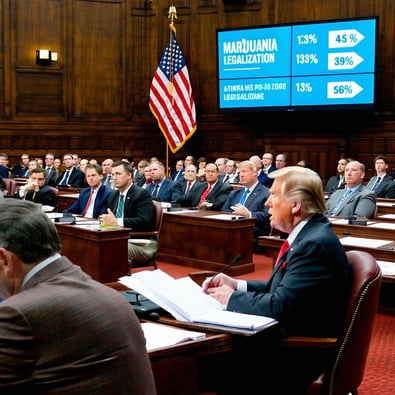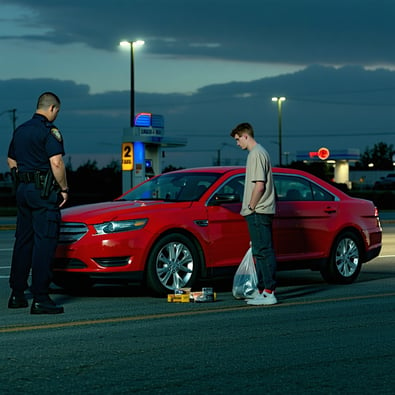San Diego city leaders passed a proposal for new licensing and enforcement measures to crack down on unregulated cannabis delivery businesses. San Diego city leaders say some cannabis businesses are evading local rules, and they’re preparing to step in. The move marks a significant step toward addressing the growing issue of untaxed cannabis in the region.
A new proposal at City Hall aims to create fair regulations for cannabis delivery businesses operating in the city. Legal dispensaries argue that competition with the unregulated market has gone on for years, prompting one shop, A Green Alternative in Otay Mesa, to sue the City of San Diego over enforcement. Right now, legal dispensaries pay the city a 10% tax, putting untaxed cannabis delivery operations at a financial advantage.
Attorney Lance Rogers, who represents A Green Alternative, describes what his clients say is likely happening near their storefront.
“A typical customer will be parked in the parking lot, and someone will approach them, and I assume say something like ‘Hey, do you want a better deal?’ and then proceed to sell them illegal cannabis,” Rogers said.
Rogers said illegal operators are stealing customers and even setting up shop down the street. “What we’re asking specifically is to collect taxes on anyone who sells cannabis in the city of San Diego,” Rogers said. The rise of untaxed cannabis businesses has created an uneven playing field, with legal shops paying their dues while illegal operators profit from loopholes.
To address concerns about unregulated, untaxed products, San Diego District 7 Councilmember Raul Campillo has proposed a new licensing requirement for delivery-only cannabis companies. “The delivery-only companies are operating essentially outside the law right now," Campillo said. "We think between 50-60% of cannabis sales in the City of San Diego are these unlicensed, untaxed cannabis transactions."
Campillo said many of the companies are based outside the city selling here, but not paying here. "They have to report their income, which means they have to pay their taxes, and if they don’t, they’ll be subject to extreme penalties,” Campillo said. The new proposal aims to curb untaxed cannabis deliveries and ensure fair taxation across the entire market.
"It allows them to step forward with their lawyers, their evidence, and go after those bad actors," Campillo said. This measure is designed to make it easier for licensed operators to take legal action against untaxed cannabis sellers who continue to break the law.
Money won in those lawsuits would be split between the business and the city, although the ratio has not yet been decided. “I appreciate that they’re looking into it and considering options here," Rogers said. "I’m not sure if it really is going to address what’s going on.”
He said he’d prefer the city enforce the existing tax requirement for any cannabis sales within city limits. Campillo’s proposal passed the San Diego City Council unanimously. He hopes to have a draft ready by February, with an ordinance potentially taking effect July 1, as the city’s new budget is approved. The goal is clear — to eliminate untaxed cannabis operations and promote a fair, regulated market for all.





